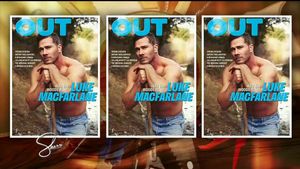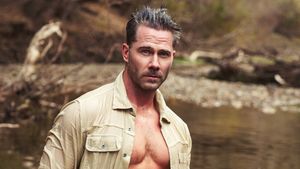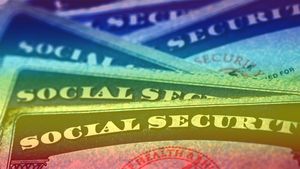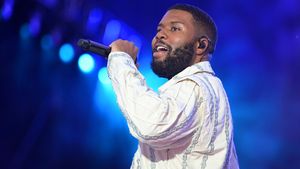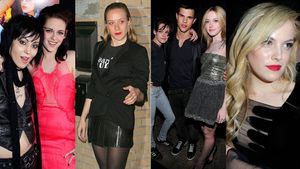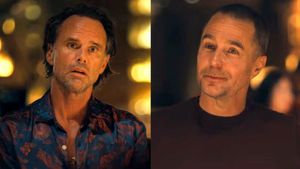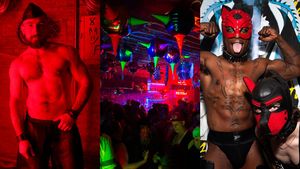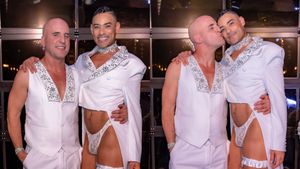Islam is not intrinsically homophobic.
That statement may come as a shock to some, but it's a case made by several activists and scholars who are dedicated to making their faith more welcoming to LGBT people. And they are seeing gradual but definite progress, at least in Western nations.
"We're not at an accepting level -- we're at a tolerating level," says Ani Zonneveld, cofounder and president of Muslims for Progressive Values, which advocates for LGBT and women's equality, interfaith cooperation and understanding, and other progressive causes. She qualifies that by saying there are progressive Muslim communities that are totally accepting, while among traditional ones, the attitude is more "don't ask, don't tell," but is beginning to shift to a more inclusive stance.
"Acceptance of LGBTQ Muslims varies widely, depending on the community and the country," adds Tynan Power, co-coordinator of the Muslim Alliance for Sexual and Gender Diversity, which works to support, empower, and connect LGBTQ Muslims. In the U.S., he says, "acceptance of any LGBTQ identity in mosques is rare," but he points out that in recent years Muslims for Progressive Values and other grassroots groups have created gender-egalitarian and LGBTQ-welcoming congregations in U.S. cities including Atlanta, Los Angeles, Washington, D.C., and his hometown of Northampton, Mass., where in 2010 he founded Pioneer Valley Progressive Muslims, which he serves as imam, or prayer leader. Outside the U.S., such congregations can be found cities including in Toronto and Paris.
The movement for greater acceptance of LGBT people in Islam, and to help LGBT Muslims reconcile their faith with their sexual identity, is a growing one. Muslims for Progressive Values was founded in Los Angeles in 2007, and since then it has expanded to include chapters in D.C., Atlanta, Salt Lake City, New York City, and Columbus, Ohio, as well as France, Chile, Australia, and Toronto and Ottawa, Canada.
In May the Muslim Alliance for Sexual and Gender Diversity welcomed 86 attendees to the third annual LGBTQ Muslim Retreat, an event aimed at advancing the reconciliation process. That's up from 71 in each of the past two years, and the number would have been greater if the retreat space was larger, says Power. His organization officially launched this year, but several of the people involved with it helped organize the earlier retreats, and some of them worked with an earlier, now-defunct LGBT Muslim group, Al-Fatiha. He hopes the founding of the alliance heralds "a bright new era for LGBTQ Muslims in the U.S."
Both Power, a queer transgender man, and Zonneveld, a straight woman, say there's nothing in the Koran, the Muslim holy book, that promotes or justifies antigay or antitransgender sentiments.
"There are progressive Muslim scholars who offer analysis of the Koran and Hadith -- sayings and accounts of the life of the prophet Muhammad -- which aims to counter some of the religious arguments that are made to exclude LGBTQ Muslims," says Power.
"However," he continues, "for those who are not scholars, I believe the argument is much simpler. We find no example in the prophet's lifetime of his punishing anyone for homosexuality or transgender [identity]. Homosexuality is not even mentioned by name in the Koran. More to the point, the prophet never excluded anyone from participation in the religious life of the mosque. The Islam practiced by the prophet Muhammad was one of radical welcome."
In some countries, of course, Islam is practiced in a radically unwelcoming fashion, with LGBT people persecuted and sometimes even executed for simply being who they are. Zonnefeld, though, sees that as a legacy of colonialism.
For much of history, she says, homosexuality was not taboo in Islam, but European powers that colonized Asian and African countries brought sexually repressive attitudes and policies with them, all in the name of "civilizing" native peoples. "What has happened is that Muslim nations became extremely homophobic," she says.
To combat this, Muslims for Progressive Values is applying for consultative status at the United Nations so it can advocate for LGBT rights worldwide. Also, the group hopes to add an affiliate in the Middle East or North Africa, she says. Some homegrown pro-LGBT groups have sprung up in those regions as well, such as the Jerusalem-based Al Qaws Centre for Sexual and Gender Diversity, which recently launched a multimedia project called "Singing Sexuality," using music, video, and other arts to foster dialogue about LGBT people in Palestinian society.
Adds Power: "Non-Muslims who believe all Muslims are homophobic are misinformed. Part of the blame is certainly on Western media, which tends to paint all Muslims with a very limited palette. However, part of the responsibility is also on the individual, for not questioning such generalizations. It's my view that assuming all Muslims are homophobic is, in itself, playing into heterosexism, because it is assuming that all Muslims are heterosexual."
 At left: Progressive Muslim congressman Keith Ellison speaks to supporters
At left: Progressive Muslim congressman Keith Ellison speaks to supporters.
Here in the U.S., the two Muslims who serve in Congress have taken stands that are anything but homophobic. House members Keith Ellison of Minnesota and Andre Carson of Indiana, both Democrats (and straight men), have strongly pro-LGBT voting records.
"I don't feel there's much of a conflict" between being a faithful Muslim and a supporter of LGBT equality, says Ellison, who serenaded the arrival of marriage equality in his home state this year with a YouTube rendition of "This Land Is Your Land." To him, he says, the LGBT cause is one facet of human rights advocacy in general.
"It's not up to me as an individual to approve or condemn anyone else," says Ellison. "The question is, Do I believe in civil and human rights for all people? ... It's really more of a question of individual liberty."
Within his mosque, he says, there is a diversity of opinion about LGBT acceptance, and some have objected to the positions he has taken in Congress, but his imam has defended him. "I've never been not fully welcomed," he adds.
He agrees that Islam does not condemn homosexuality. "The Koran doesn't address the issue at all," he says. "It doesn't discuss it." He does see growing acceptance of LGBT people among U.S. Muslims, noting, "I think it probably reflects the attitudes of American society generally." When Minnesotans rejected an anti-marriage equality constitutional amendment last November, "Muslims probably voted similarly to the rest of the population," he says.
As for members of his faith who would use their religion as a basis for antigay laws, he reminds them that Muslims are often targets of prejudice as well. If the general public were polled on how they view Muslims and how they view LGBT people, he says, Muslims would probably rank lower. So he makes this argument: "It's rights for all or rights for none."
Zonneveld notes that antigay and anti-Muslim attitudes often come from the same sources. So it's key, she says, for LGBT Muslims to join with other progressive forces within the faith to advocate for equality and inclusion. "We should be working together," she says.
While much remains to be done to strip away what she calls the "layers of prejudice" in some Muslim congregations and entire nations, the work goes on. Muslims for Progressive Values continues to establish inclusive worship spaces and offers pro-equality discourses by Muslim scholars on its website. The Muslim Alliance for Sexual and Gender Diversity is planning next year's retreat, to be held in May, along with a variety of other projects, and offers referrals to LGBT-inclusive mosques.
As for working together, Power lauds the efforts of Muslims for Progressive Values and other pro-LGBT Muslim groups around the world. And both his group and Zonneveld's are partnering with well-established LGBT organizations: The Muslim Alliance has participated in the National Gay and Lesbian Task Force's Creating Change conference, while Muslims for Progressive Values is hosting an evening with prominent writer Reza Aslan November 15 at the Human Rights Campaign headquarters in Washington, D.C. The result of all this may indeed be, as Power puts it, a "bright new day."
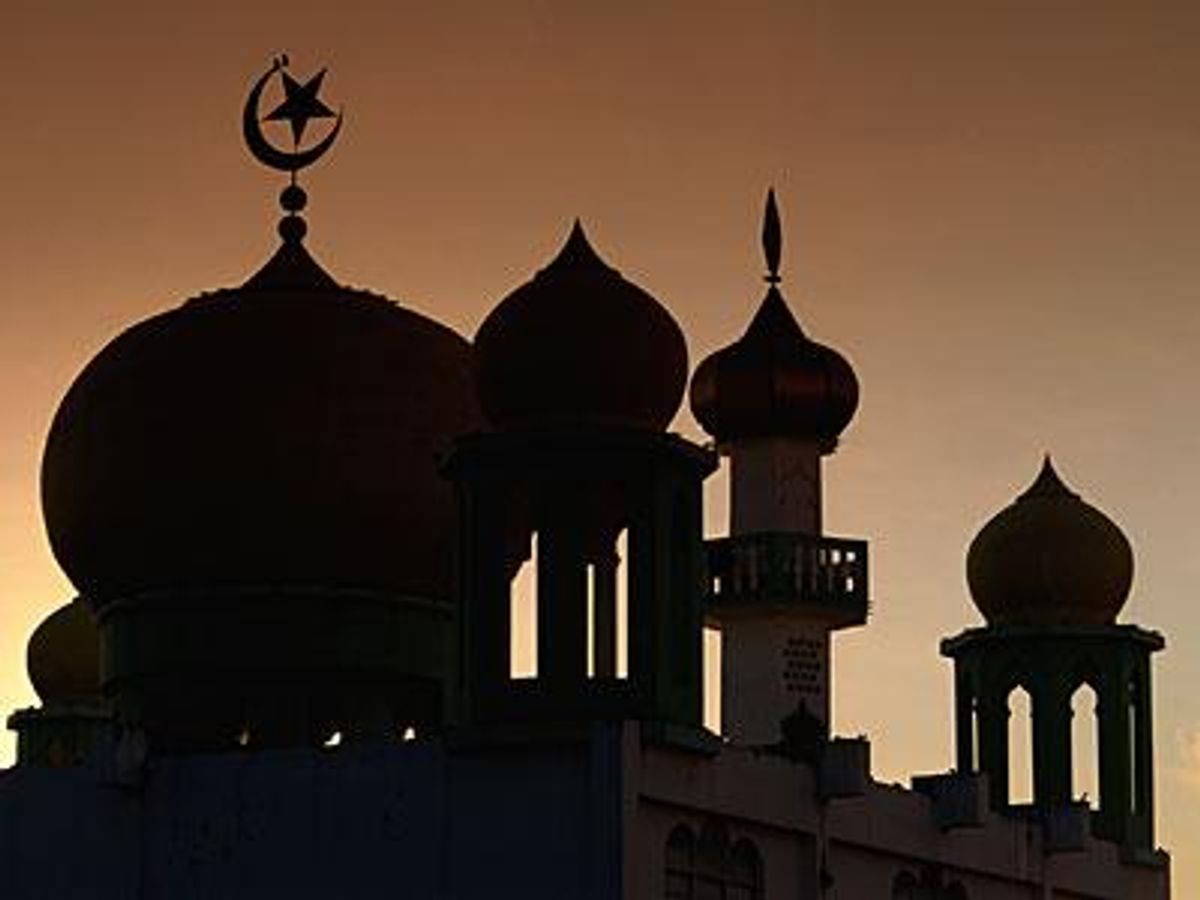

 At left: Progressive Muslim congressman Keith Ellison speaks to supporters.
At left: Progressive Muslim congressman Keith Ellison speaks to supporters.



























